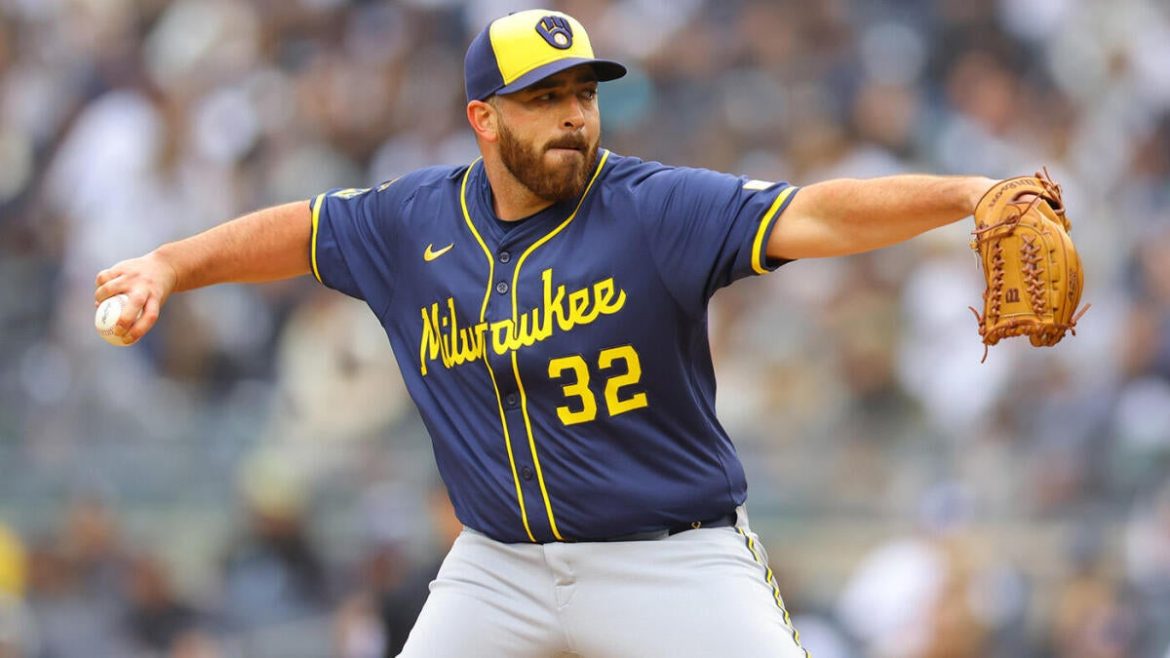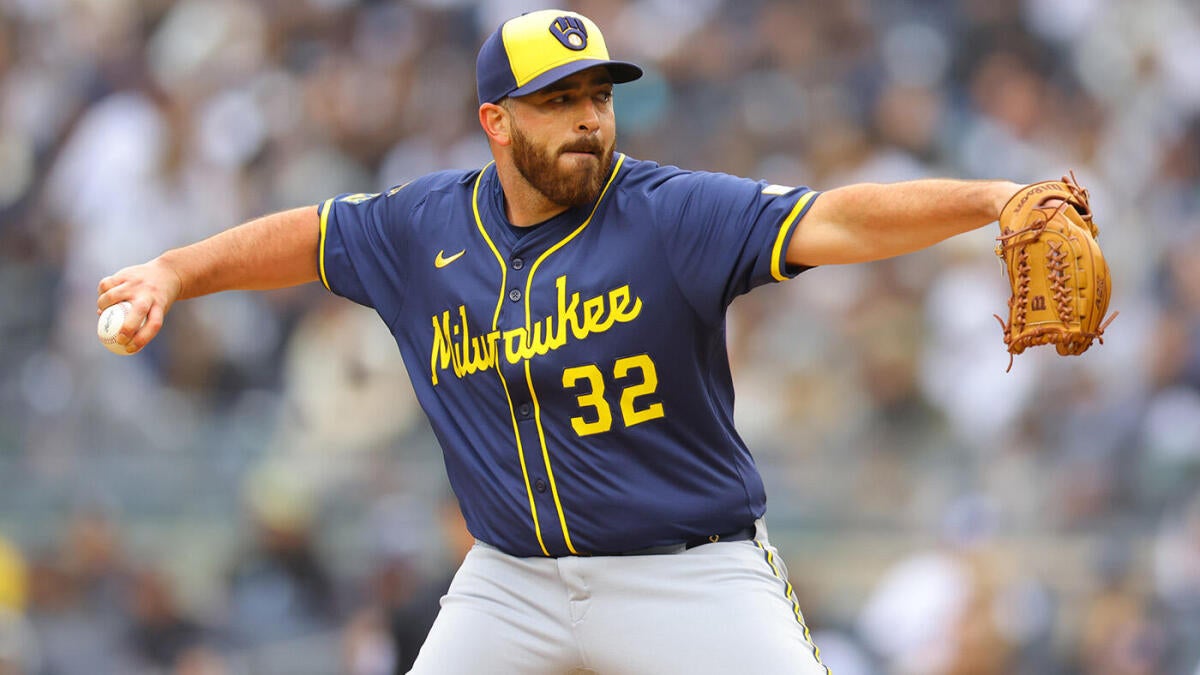Trade Overview: Brewers and White Sox Swap Aaron Civale and Andrew Vaughn
In a swift and notable move, the Milwaukee Brewers and the Chicago White Sox executed a trade involving right-handed pitcher Aaron Civale and first baseman Andrew Vaughn. The trade materialized mere days after Civale formally requested a trade from the Brewers following a demotion from the starting rotation to the bullpen. This transaction signals notable shifts for both franchises and carries layered implications in terms of player roles, team strategies, and future outlooks.
—
Background and Context of the Trade
Aaron Civale, a 30-year-old right-hander known primarily as a starter—with over 120 appearances in that role during his career—was recently moved by the Brewers to the bullpen. This move did not sit well with him, leading to a trade request. Civale’s desire to maintain his starting role reflects his self-assessment and presumably his value assessment heading into the final year of his contract, earning $8 million in 2025 before he becomes a free agent.
Andrew Vaughn, by contrast, is a younger (27-year-old) first baseman who was a highly regarded prospect, a former first-round pick (No. 3 overall in 2019). Vaughn had faced some struggles recently, including time in the minor leagues, batting .211 in 57 at-bats during one of these stints. Despite his challenges, Vaughn carries significant potential, having displayed power with 77 career home runs.
—
Analysis of the Brewers’ Perspective
By acquiescing to Civale’s trade request, the Brewers signaled a willingness to reshape their pitching staff and accommodate player preferences. Likely influenced by the emergence of rookie Jacob Misiorowski, who has shown strong performance as a starter, Milwaukee chose to pivot away from Civale’s role in their rotation.
In acquiring Andrew Vaughn, the Brewers take on a former top prospect with power-hitting potential who could provide offensive support at the first base position. The Brewers are also reported to be sending compensatory salary cash to the White Sox to balance the difference between Civale’s $8 million salary and Vaughn’s $5.85 million contract for the year, suggesting a financial consideration that makes the deal feasible for both teams.
This move could be viewed as a strategic attempt to boost Milwaukee’s offense while recalibrating their pitching depth. Vaughn’s potential for a fresh start in Milwaukee might invigorate his career after recent setbacks.
—
Analysis of the White Sox’s Perspective
The White Sox acquire a 30-year-old veteran pitcher who is accustomed to starting and has proven his value in that role. By adding Civale to their rotation, they bolster their pitching options with an experienced arm eager to reclaim a starter’s role.
Chicago’s decision to move Vaughn indicates a willingness to swap offensive needs for pitching stability. They apparently believe Civale can contribute positively to their rotation and are willing to part with Vaughn, a power-hitting asset, to do so.
The trade suggests that the White Sox are prioritizing stabilizing and strengthening their pitching staff, possibly at the cost of some offensive potential, reflecting a responsive adjustment to their roster demands.
—
Potential Impact and Future Considerations
– For Aaron Civale: This trade represents a fresh opportunity to start again, with the White Sox granting him the role he desires. Civale’s career has been marked by consistency as a starter, so Chicago may benefit from his willingness to maintain that role.
– For Andrew Vaughn: A change of scenery may be what Vaughn needs to recover from recent slumps. The Brewers’ investment and salary offset indicate some confidence that Vaughn can regain form and contribute offensively.
– Team Dynamics: Milwaukee’s bullpen reshuffling and rookie emergence motivated this trade, while Chicago’s desire to improve starting pitching depth drove their acceptance of Vaughn’s departure. The trade balances immediate player needs and future competitive strategies.
– Financial Implications: The Brewers’ cash payment to the White Sox reflects salary differences and indicates the trade is as much a financial arrangement as a talent swap.
– Fan and Market Reactions: Civale’s trade request and quick fulfillment could indicate shifting player empowerment trends and franchise responsiveness. Vaughn’s move may generate intrigue among Brewers fans hopeful for his resurgence.
—
Conclusion: A Bold and Strategic Swap Shaping Team Trajectories
The Aaron Civale–Andrew Vaughn trade underscores the complex interplay between player preferences, team strategy, and roster management in Major League Baseball. Civale’s insistence on remaining a starter pushed the Brewers to promptly accommodate his wish, sending him to the White Sox while acquiring a promising, if currently underperforming, power hitter in Vaughn. Both teams address distinct needs: Milwaukee gains offensive reinforcement at first base, Chicago enhances its pitching rotation with a battle-tested starter.
This trade highlights how MLB franchises continuously adapt to evolving circumstances, balancing talent potential, player roles, financial considerations, and competitive goals. Whether Vaughn fulfills the Brewers’ expectations or Civale thrives anew with the White Sox remains to be seen, but the exchange refreshes both teams’ rosters in meaningful ways as the 2025 season progresses.





